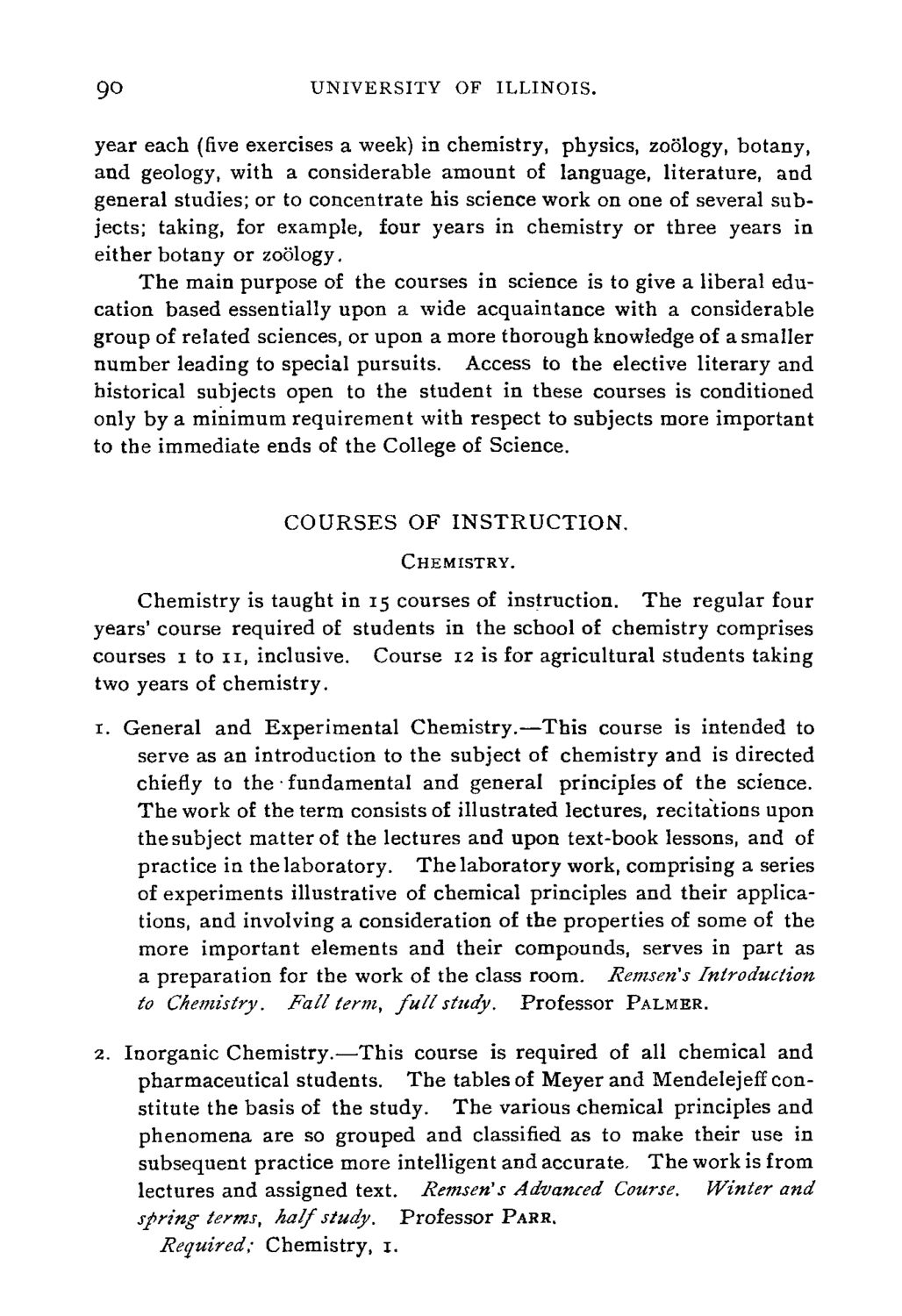| |
| |
Caption: Course Catalog - 1892-1893
This is a reduced-resolution page image for fast online browsing.

EXTRACTED TEXT FROM PAGE:
90 UNIVERSITY OF ILLINOIS. year each (five exercises a week) in chemistry, physics, zoology, botany, and geology, with a considerable amount of language, literature, and general studies; or to concentrate his science work on one of several subjects; taking, for example, four years in chemistry or three years in either botany or zoology. The main purpose of the courses in science is to give a liberal education based essentially upon a wide acquaintance with a considerable group of related sciences, or upon a more thorough knowledge of a smaller number leading to special pursuits. Access to the elective literary and historical subjects open to the student in these courses is conditioned only by a minimum requirement with respect to subjects more important to the immediate ends of the College of Science. COURSES OF INSTRUCTION. CHEMISTRY. Chemistry is taught in 15 courses of instruction. The regular four years' course required of students in the school of chemistry comprises courses 1 to 11, inclusive. Course 12 is for agricultural students taking two years of chemistry. 1. General and Experimental Chemistry.—This course is intended to serve as an introduction to the subject of chemistry and is directed chiefly to the • fundamental and general principles of the science. The work of the terra consists of illustrated lectures, recitations upon thesubject matter of the lectures and upon text-book lessons, and of practice in the laboratory. The laboratory work, comprising a series of experiments illustrative of chemical principles and their applications, and involving a consideration of the properties of some of the more important elements and their compounds, serves in part as a preparation for the work of the class room. Remseris Introduction to Chemistry. Fall term, full study. Professor PALMER. 2. Inorganic Chemistry.—This course is required of all chemical and pharmaceutical students. The tables of Meyer and Mendelejeff constitute the basis of the study. The various chemical principles and phenomena are so grouped and classified as to make their use in subsequent practice more intelligent and accurate. The work is from lectures and assigned text. Remseris Advanced Cotirse. Winter and spring terms, half study. Professor PARR. Required: Chemistry, 1.
| |